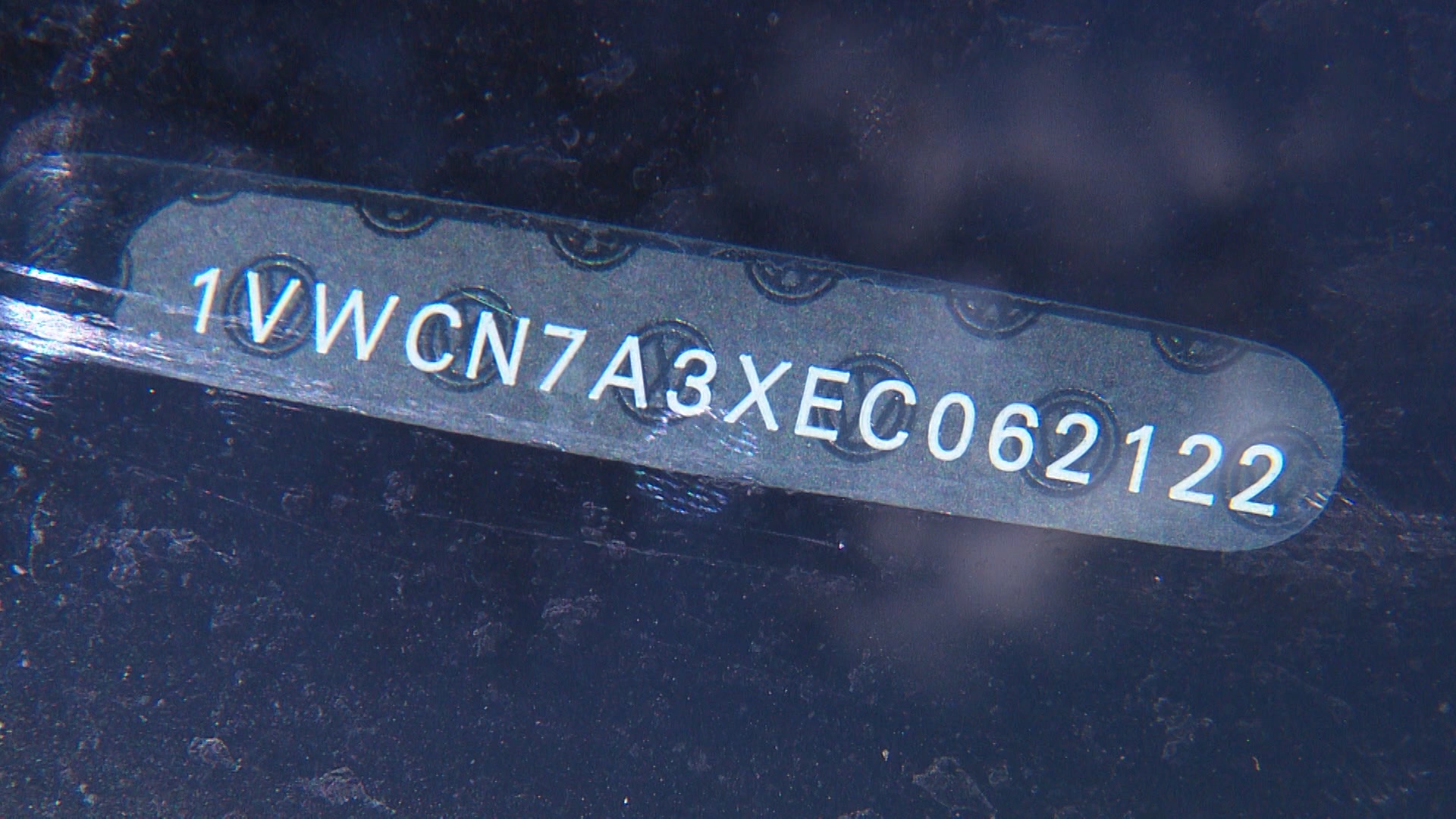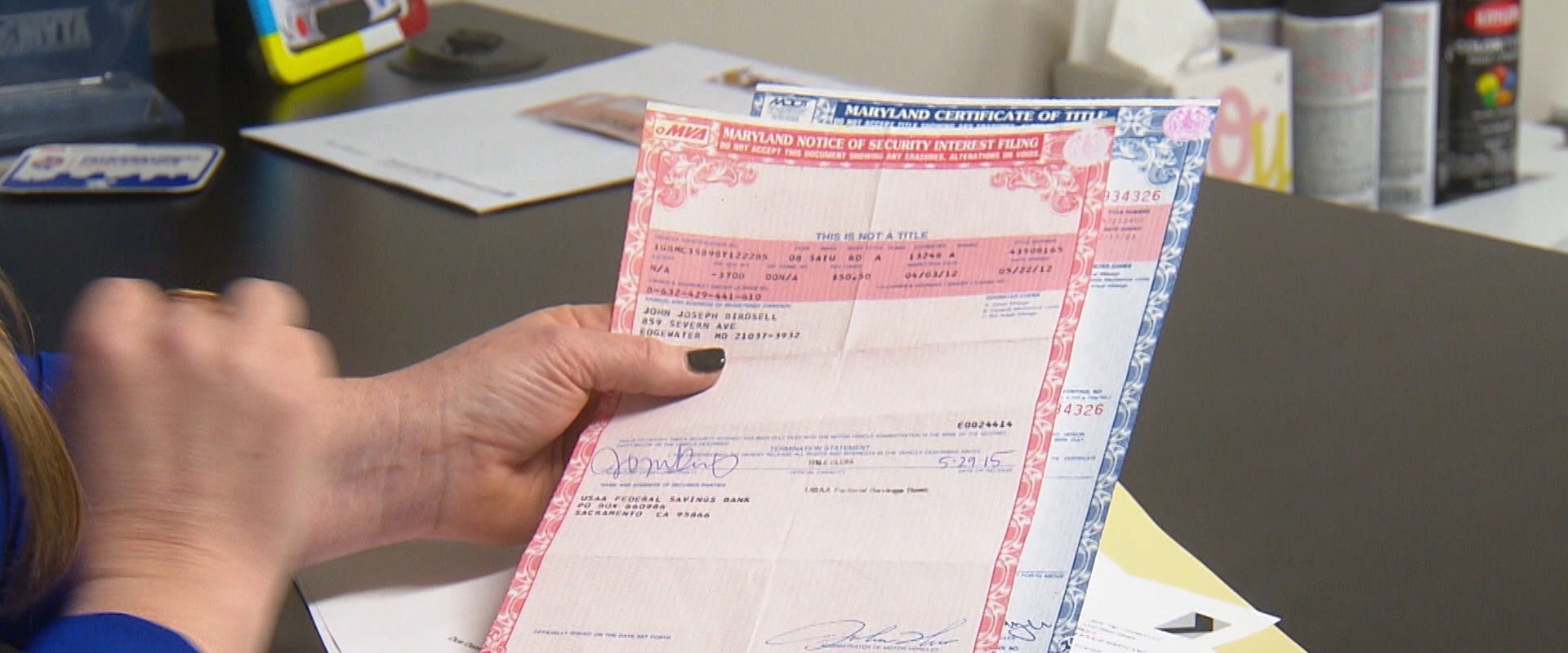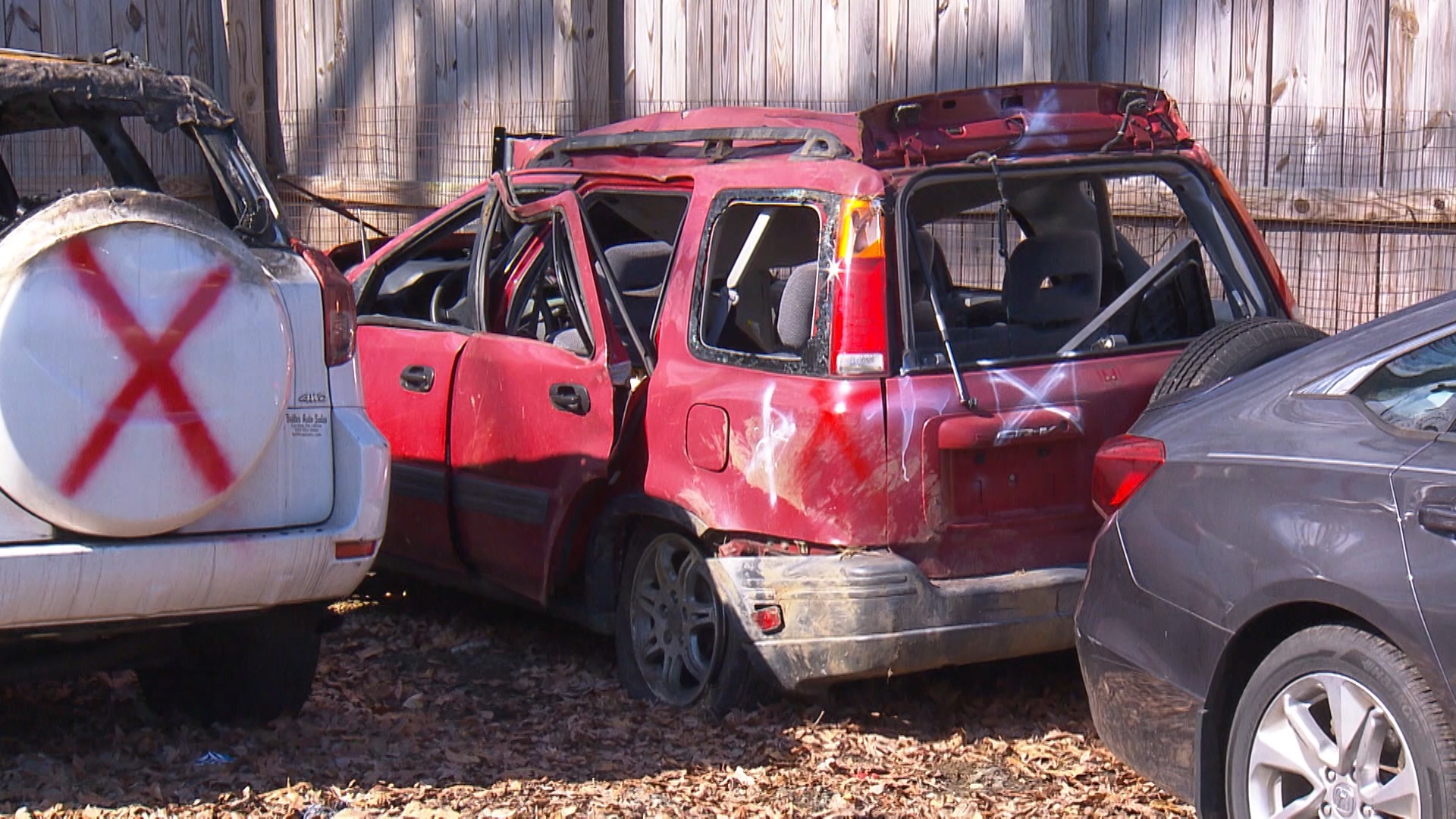Salvage Titles
You really need to be cautious if you’re shopping for a used car online from a third-party like Craigslist or Facebook Marketplace because in the end it could be hard to get a license plate. But there are resources that can help you before you sign on that dotted line.
Beth Caro owns Auto Tag Connect in Annapolis, Maryland. Her company acts as an extension of the Maryland State Department of Motor Vehicles. She says tons of people come into her office everyday with the same story: they bought a used car from a third party, never asked about its title beforehand, and come to find out, it has a salvage branded title which, more often than not, causes big, expensive problems for them.
BETH CARO: A salvage title is basically when a vehicle has gone through a total loss accident and an auto insurance company has determined that vehicle a total loss. And most states across the US that’s determined at 60-to-100 percent.
STEPHANIE HART: A salvage title means the automobile can’t be driven, sold or registered in its current condition, which makes getting insurance a big challenge.
BETH CARO: They might not even be able to get approved to have an active insurance policy on that car with that branding. So, it’s really important to think about what you’re going to be doing with that vehicle. Are you going to be reselling it in a year? Because that value on a salvage vehicle is significantly lower and sometimes may not even have a resale value.
STEPHANIE HART: By law, if you’re buying a used vehicle that has been in an accident and has a salvage title, the third-party seller or the dealership must disclose that to you; but, that doesn’t always happen, especially when dealing with private sellers. So, what can you do to protect yourself?
CHRIS BROWN: There’s a lot of things as a consumer, not being an expert, that you can look for on your own to see if a car has been in an accident. All these stickers here are from the factory. Usually when a car has been in an accident these do not get replaced. They’ll replace the piece under it, but not these here. The bolts here—to put things together– if they’re different and they don’t match they’re def— definitely was not done at the factory or a professional shop.
STEPHANIE HART: And consumers should always check the VIN plate…
CHRIS BROWN: Yes. They should always check the VIN plate and also make sure it aligns with their title.
In the VIN plate on most cars if you look carefully there’s a hologram. It can’t be counterfeited with the hologram.
Make sure the VIN number is either riveted or there’s no screws in it. If someone’s tampered with it there’s going to be screws—it’s not gonna look factory.
 Vehicle Identification Number (VIN) on a Windshield
Vehicle Identification Number (VIN) on a Windshield
STEPHANIE HART: And consumers always want to check the door jam for a matching VIN number.
CHRIS BROWN: Yes, and this VIN number should also match what is on the title and obviously what’s on the dashboard there.
STEPHANIE HART: Next use that VIN number to run the vehicle’s national car history report to find out if they car you want to buy has a clean title. The National Motor Vehicle Title Information is an association that oversees the DMVs and is a great resource. So are title search firm, like CarFax.
A car’s history report also reveals if it’s been in a flood. If so, it’s considered a salvage vehicle. Caro recommends steering away from flood vehicles even if it seems like a good deal.
BETH CARO: Let me tell you: that mold and mildew does not go away. The electrical sams do not like that and what’s going to happen is an electrical demon in your car.
STEPHANIE HART: In addition to looking over the car’s history report to check for a clean title, it’s smart to have a mechanic check out the vehicle to make sure it’s 100-percent safe to drive.









